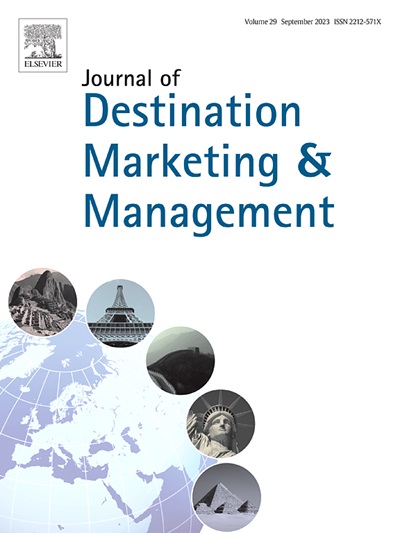Dimensions of spirituality in tourism: Developing the spiritual tourism experience scale (STES)
IF 7.4
2区 管理学
Q1 HOSPITALITY, LEISURE, SPORT & TOURISM
引用次数: 0
Abstract
Spirituality focuses on understanding the purpose of human creation and the ways to make life meaningful. The inner quest combined with travels and experiences motivated by both internal and external factors forms the core of spiritual tourism, setting it apart from religious tourism. The research primarily aims to develop, test, and validate a scale for measuring the spiritual tourism experience. The study utilizes a hypercritical scale development procedure based on the mixed research method. The data collection and processing procedure included 11 face-to-face and 42 asynchronous online interviews, 30 participant observations, a thematic analysis of 2683 tourist statements from 818 reviews, 950 questionnaires conducted on spiritual tourists, and further confirmatory factor analysis performed on PLS. The spiritual tourism experience is ultimately structured into six dimensions: "Transformation, Healing, Atmosphere, Transcendence, Escape, Divine Connectedness." The findings confirm that the 31-item "Spiritual Tourism Experience Scale (STES)" is both statistically valid and reliable. Based on the research findings, the paper presents the most comprehensive definition of spiritual tourism. The findings contradict the view that spiritual tourism is merely a subset of religious tourism. The psychometric properties of STES along with its practical and theoretical implications are discussed within the tourism industry and destination marketing framework.
旅游业中的精神层面:制定精神旅游体验量表(STES)
精神旅游的重点在于理解人类创造的目的以及如何让生活变得更有意义。内在追求与由内外因素驱动的旅行和体验相结合,构成了精神旅游的核心,使其有别于宗教旅游。这项研究的主要目的是开发、测试和验证一个衡量心灵旅游体验的量表。研究采用了基于混合研究法的超临界量表编制程序。数据收集和处理程序包括 11 次面对面访谈和 42 次异步在线访谈、30 次参与者观察、对 818 篇评论中的 2683 份游客陈述进行主题分析、对灵性游客进行 950 份问卷调查,以及进一步使用 PLS 进行确认性因子分析。灵性旅游体验最终分为六个维度:"转变、治愈、氛围、超越、逃离、神圣联系"。研究结果证实,31 个项目的 "心灵旅游体验量表(STES)"在统计上是有效和可靠的。根据研究结果,本文提出了灵性旅游最全面的定义。研究结果与精神旅游仅仅是宗教旅游的一个分支的观点相矛盾。本文在旅游业和目的地营销框架内讨论了 "心灵旅游体验量表 "的心理测量特性及其实践和理论意义。
本文章由计算机程序翻译,如有差异,请以英文原文为准。
求助全文
约1分钟内获得全文
求助全文
来源期刊
CiteScore
18.60
自引率
3.60%
发文量
46
审稿时长
43 days
期刊介绍:
The Journal of Destination Marketing & Management (JDMM) is an international journal that focuses on the study of tourist destinations, specifically their marketing and management. It aims to provide a critical understanding of all aspects of destination marketing and management, considering their unique contexts in terms of policy, planning, economics, geography, and history. The journal seeks to develop a strong theoretical foundation in this field by incorporating knowledge from various disciplinary approaches. Additionally, JDMM aims to promote critical thinking and innovation in destination marketing and management, expand the boundaries of knowledge, and serve as a platform for international idea exchange.

 求助内容:
求助内容: 应助结果提醒方式:
应助结果提醒方式:


